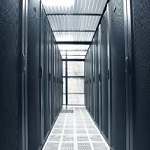If you are an experienced IT executive, you probably already know that a colocation (colo) is a data center facility in which a business can rent space for servers and other computer hardware. Generally, the colo provides the building, cooling, power, bandwidth and security while the customer provides the servers and storage.
Nevertheless, every day I talk to IT executives of small-to-medium sized businesses that are unfamiliar with colocation and why a data center makes sense; even those that know what colo is, often have a few important misconceptions.
5 Colocation Data Center Benefits:
- Reliability, Redundancy and Uptime. Corporate owned and operated data centers may not be built or operated to the standards of independent data centers, since many were built 10-20 years ago. Many small-to-medium businesses may not have business data centers at all. Data centers offer secure facilities with redundant power, cooling, and bandwidth with expert staffing to manage the diverse technology. Data centers are required to provide Service Level Agreements (SLA) related to all key elements of the center. When SLA’s are missed, the operator is required to compensate the tenant. As a result, the data center and systems are generally designed to be state-of-the-art and are maintained at the highest level to avoid downtime and subsequent penalties.
- Risk Mitigation. Distance between the company’s corporate location and its production data center eliminates the risk of a single event – such as a power outage or natural disaster – taking out both facilities. Something corporate housed data centers simply can’t provide.
- Security and Data Protection. Data breaches have increased year-over-year and there’s no end in sight. With data regulations becoming stricter, and penalties becoming more expensive, a data breach can spell disaster. Colocation facilities are hardened against forced entry, unauthorized access, fire and natural disasters. Data centers offer multiple layers of security including 24/7 onsite security, biometric and cardkey entry, cabinet and cage locks, and camera surveillance… Is your data center protected?
- Business Continuity and Disaster Recovery. Collocating your IT infrastructure creates additional peace of mind in the event of a natural disaster, power outage, or other unexpected event that impacts your primary place of business. Collocating can ensure that your offsite servers, equipment and applications will remain available and operational if the unexpected happens… without this, imagine the potential cost and impact to your business?
- Expert Staffing. Data centers provide 24/7 expert staffing so you can focus on your IT production instead of the logistics of managing your IT resources. Some data centers offer specialized technology expertise, such as IBM i, AIX, Linux, Solaris, or HP-IX. Think of this as having your staff continually trained at the cutting edge levels.
What Can You Expect To Pay For Colocation?
Let’s say you have an IBM i POWER server with a range of 5U to 15U. This may include your server (5U) and up to two storage expansion units (10U). Depending on your location, you may find that the colo data center will charge in a range of $1500 – $3000 per month.
You Pay A Fraction Of The Colocation Monthly Fee When You Host Your Applications
How come?
You pay for only a small portion of the server called a Logical Partition (LPAR). The colocation data center costs of your LPAR are shared by other user tenants of the server.
In fact, if you compare the cloud hosting fee to the cost of a data center, it is almost like paying for a fraction of the data center fee — and getting your application hosting for free. That is generally how big the savings can be.
If you like this post, please share it
We would love to hear your comments. Please leave some below.

Leave a Reply